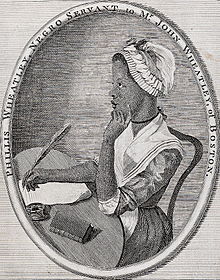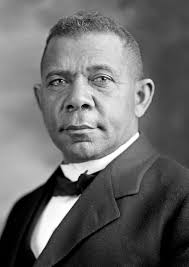Below is a full text of Luther’s 95 Theses:
Out of love for the truth and from desire to elucidate it, the Reverend Father Martin Luther, Master of Arts and Sacred Theology, and ordinary lecturer therein at Wittenberg, intends to defend the following statements and to dispute on them in that place. Therefore he asks that those who cannot be present and dispute with him orally shall do so in their absence by letter. In the name of our Lord Jesus Christ, Amen.
1. Our Lord and Master Jesus Christ, in saying, “Repent ye, etc.,” intended that the whole life of his believers on earth should be a constant penance.
2. And the word “penance” neither can, nor may, be understood as referring to the Sacrament of Penance, that is, to confession and atonement as exercised under the priest’s ministry.
3. Nevertheless He does not think of inward penance only: rather is inward penance worthless unless it produces various outward mortifications of the flesh.
4. Therefore mortification continues as long as hatred of oneself continues, that is to say, true inward penance lasts until entrance into the Kingdom of Heaven.
5. The Pope will not, and cannot, remit other punishments than those which he has imposed by his own decree or according to the canons.
6. The Pope can forgive sins only in the sense, that he declares and confirms what may be forgiven of God; or that he doth it in those cases which he hath reserved to himself; be this contemned, the sin remains unremitted.
7. God forgives none his sin without at the same time casting him penitent and humbled before the priest His vicar.
8. The canons concerning penance are imposed only on the living; they ought not by any means, following the same canons, to be imposed on the dying.
9. Therefore, the Holy Spirit, acting in the Pope, does well for us, when the latter in his decrees entirely removes the article of death and extreme necessity.
10. Those priests act unreasonably and ill who reserve for Purgatory the penance imposed on the dying.
11. This abuse of changing canonical penalty into the penalty of Purgatory seems to have arisen when the bishops were asleep.
12. In times of yore, canonical penalties were imposed, not after, but before, absolution, as tests of true repentance and affliction.
13. The dying pay all penalties by their death, are already dead to the canons, and rightly have exemption from them.
14. Imperfect spiritual health or love in the dying person necessarily brings with it great fear; and the less this love is, the greater the fear it brings.
15. This fear and horror – to say nothing of other things – are sufficient in themselves to produce the punishment of Purgatory, because they approximate to the horror of despair.
16. Hell, Purgatory, and Heaven seem to differ as perfect despair, imperfect despair, and security of salvation differ.
17. It seems as must in Purgatory love in the souls increase, as fear diminishes in them.
18. It does not seem to be proved either by arguments or by the Holy Writ that they are outside the state of merit and demerit, or increase of love.
19. This, too, seems not to be proved, that they are all sure and confident of their salvation, though we may be quite sure of it.
20. Therefore the Pope, in speaking of the perfect remission of all punishments, does not mean that all penalties in general be forgiven, but only those imposed by himself.
21. Therefore, those preachers of indulgences err who say that, by the Pope’s indulgence, a man may be exempt from all punishments, and be saved.
22. Yea, the Pope remits the souls in Purgatory no penalty which they, according to the canons, would have had to pay in this life.
23. If to anybody complete remission of all penalties may be granted, it is certain that it is granted only to those most approaching perfection, that is, to very few.
24. Therefore the multitude is misled by the boastful promise of the paid penalty, whereby no manner of distinction is made.
25. The same power that the Pope has over Purgatory, such has also every bishop in his diocese, and every curate in his parish.
26. The Pope acts most rightly in granting remission to souls, not by the power of the keys – which in Purgatory he does not possess – but by way of intercession.
27. They preach vanity who say that the soul flies out of Purgatory as soon as the money thrown into the chest rattles.
28. What is sure, is, that as soon as the penny rattles in the chest, gain and avarice are on the way of increase; but the intercession of the church depends only on the will of God Himself.
29. And who knows, too, whether all those souls in Purgatory wish to be redeemed, as it is said to have happened with St. Severinus and St. Paschalis.
30. Nobody is sure of having repented sincerely enough; much less can he be sure of having received perfect remission of sins.
31. Seldom even as he who has sincere repentance, is he who really gains indulgence; that is to say, most seldom to be found.
32. On the way to eternal damnation are they and their teachers, who believe that they are sure of their salvation through indulgences.
33. Beware well of those who say, the Pope’s pardons are that inestimable gift of God by which man is reconciled to God.
34. For the forgiveness contained in these pardons has reference only to the penalties of sacramental atonement which were appointed by men.
35. He preaches like a heathen who teaches that those who will deliver souls out of Purgatory or buy indulgences do not need repentance and contrition.
36. Every Christian who feels sincere repentance and woe on account of his sins, has perfect remission of pain and guilt even without letters of indulgence.
37. Every true Christian, be he still alive or already dead, partaketh in all benefits of Christ and of the Church given him by God, even without letters of indulgence.
38. Yet is the Pope’s absolution and dispensation by no means to be contemned, since it is, as I have said, a declaration of the Divine Absolution.
39. It is exceedingly difficult, even for the most subtle theologists, to praise at the same time before the people the great wealth of indulgence and the truth of utter contrition.
40. True repentance and contrition seek and love punishment; while rich indulgence absolves from it, and causes men to hate it, or at least gives them occasion to do so.
41. The Pope’s indulgence ought to be proclaimed with all precaution, lest the people should mistakenly believe it of more value than all other works of charity.
42. Christians should be taught, it is not the Pope’s opinion that the buying of indulgence is in any way comparable to works of charity.
43. Christians should be taught, he who gives to the poor, or lends to a needy man, does better than buying indulgence.
44. For, by the exercise of charity, charity increases and man grows better, while by means of indulgence, he does not become better, but only freer from punishment.
45. Christians should be taught, he who sees his neighbor in distress, and, nevertheless, buys indulgence, is not partaking in the Pope’s pardons, but in the anger of God.
46. Christians should be taught, unless they are rich enough, it is their duty to keep what is necessary for the use of their households, and by no means to throw it away on indulgences.
47. Christians should be taught, the buying of indulgences is optional and not commanded.
48. Christians should be taught, the Pope, in selling pardons, has more want and more desire of a devout prayer for himself than of the money.
49. Christians should be taught, the Pope’s pardons are useful as far as one does not put confidence in them, but on the contrary most dangerous, if through them one loses the fear of God.
50. Christians should be taught, if the Pope knew the ways and doings of the preachers of indulgences, he would prefer that St. Peter’s Minster should be burnt to ashes, rather than that it should be built up of the skin, flesh, and bones of his lambs.
51. Christians should be taught, the Pope, as it is his bounden duty to do, is indeed also willing to give of his own money – and should St. Peter’s be sold thereto – to those from whom the preachers of indulgences do most extort money.
52. It is a vain and false thing to hope to be saved through indulgences, though the commissary – nay, the Pope himself – was to pledge his own soul therefore.
53. Those who, on account of a sermon concerning indulgences in one church, condemn the word of God to silence in the others, are enemies of Christ and of the Pope.
54. Wrong is done to the word of God if one in the same sermon spends as much or more time on indulgences as on the word of the Gospel.
55. The opinion of the Pope cannot be otherwise than this:- If an indulgence – which is the lowest thing – be celebrated with one bell, one procession and ceremonies, then the Gospel – which is the highest thing – must be celebrated with a hundred bells, a hundred processions, and a hundred ceremonies.
56. The treasures of the Church, whence the Pope grants his dispensation are neither sufficiently named nor known among the community of Christ.
57. It is manifest that they are not temporal treasures, for the latter are not lightly spent, but rather gathered by many of the preachers.
58. Nor are they the merits of Christ and of the saints, for these, without the Pope’s aid, work always grace to the inner man, cross, death, and hell to the other man.
59. St. Lawrence called the poor of the community the treasures of the community and of the Church, but he understood the word according to the use in his time.
60. We affirm without pertness that the keys of the Church, bestowed through the merit of Christ, are this treasure.
61. For it is clear that the Pope’s power is sufficient for the remission of penalties and forgiveness in the reserved cases.
62. The right and true treasure of the Church is the most Holy Gospel of the glory and grace of God.
63. This treasure, however, is deservedly most hateful, for it makes the first to be last.
64. While the treasure of indulgence is deservedly most agreeable, for it makes the last to be first.
65. Therefore, the treasures of the Gospel are nets, with which, in times of yore, one fished for the men of Mammon.
66. But the treasures of indulgence are nets, with which now-a-days one fishes for the Mammon of men.
67. Those indulgences, which the preachers proclaim to be great mercies, are indeed great mercies, forasmuch as they promote gain.
68. And yet they are of the smallest compared to the grace of God and to the devotion of the Cross.
69. Bishops and curates ought to mark with eyes and ears, that the commissaries of apostolical (that is, Popish) pardons are received with all reverence.
70. But they ought still more to mark with eyes and ears, that these commissaries do not preach their own fancies instead of what the Pope has commanded.
71. He who speaks against the truth of apostolical pardons, be anathema and cursed.
72. But blessed be he who is on his guard against the preacher’s of pardons naughty and impudent words.
73. As the Pope justly disgraces and excommunicates those who use any kind of contrivance to do damage to the traffic in indulgences.
74. Much more it is his intention to disgrace and excommunicate those who, under the pretext of indulgences, use contrivance to do damage to holy love and truth.
75. To think that the Popish pardons have power to absolve a man even if – to utter an impossibility – he had violated the Mother of God, is madness.
76. We assert on the contrary that the Popish pardon cannot take away the least of daily sins, as regards the guilt of it.
77. To say that St. Peter, if he were now Pope, could show no greater mercies, is blasphemy against St. Peter and the Pope.
78. We assert on the contrary that both this and every other Pope has greater mercies to show: namely, the Gospel, spiritual powers, gifts of healing, etc. (1.Cor.XII).
79. He who says that the cross with the Pope’s arms, solemnly set on high, has as much power as the Cross of Christ, blasphemes God.
80. Those bishops, curates, and theologists, who allow such speeches to be uttered among the people, will have one day to answer for it.
81. Such impudent sermons concerning indulgences make it difficult even for learned men to protect the Pope’s honor and dignity against the calumnies, or at all events against the searching questions, of the laymen.
82. As for instance: – Why does not the Pope deliver all souls at the same time out of Purgatory for the sake of most holy love and on account of the bitterest distress of those souls – this being the most imperative of all motives, – while he saves an infinite number of souls for the sake of that most miserable thing money, to be spent on St. Peter’s Minster: – this being the very slightest of motives?
83. Or again: – Why do masses for the dead continue, and why does not the Pope return or permit to be withdrawn the funds which were established for the sake of the dead, since it is now wrong to pray for those who are already saved?
84. Again: – What is this new holiness of God and the Pope that, for money’s sake, they permit the wicked and the enemy of God to save a pious soul, faithful to God, and yet will not save that pious and beloved soul without payment, out of love, and on account of its great distress?
85. Again: – Why is it that the canons of penance, long abrogated and dead in themselves, because they are not used, are yet still paid for with money through the granting of pardons, as if they were still in force and alive?
86. Again: – Why does not the Pope build St. Peter’s Minster with his own money – since his riches are now more ample than those of Crassus, – rather than with the money of poor Christians?
87. Again: -Why does the Pope remit or give to those who, through perfect penitence, have already a right to plenary remission and pardon?
88. Again: – What greater good could the Church receive, than if the Pope presented this remission and pardon a hundred times a day to every believer, instead of but once, as he does now?
89. If the Pope seeks by his pardon the salvation of souls, rather than money, why does he annul letters of indulgence granted long ago, and declare them out of force, though they are still in force?
90. To repress these very telling questions of the laymen by force, and not to solve them by telling the truth, is to expose the Church and the Pope to the enemy’s ridicule and to make Christian people unhappy.
91. Therefore, if pardons were preached according to the Pope’s intention and opinion, all these objections would be easily answered, nay, they never had occurred.
92. Away then with all those prophets who say to the community of Christ, “Peace, peace”, and there is no peace.
93. But blessed be all those prophets who say to the community of Christ, “The cross, the cross,” and there is no cross.
94. Christians should be exhorted to endeavor to follow Christ their Head through Cross, Death, and Hell,
95. And thus hope with confidence to enter Heaven through many miseries, rather than in false security.
M. D. XVII



